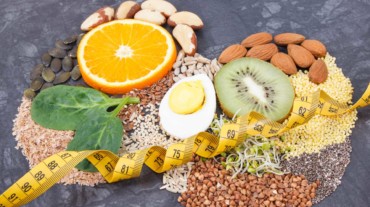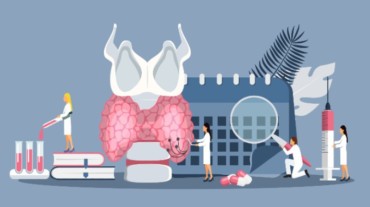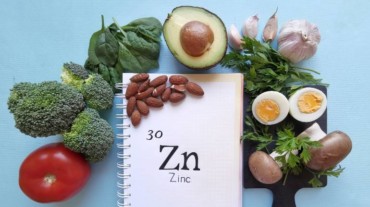
Balance is key when it comes to the functioning of the thyroid gland. Shaped liked a butterfly, it is small gland but don’t let its size fool you! From metabolism and heart rate to brain function and gut health—it controls the rate at which every cell, tissue, and organ in the body functions. Thyroid hormones (T3 and T4) control how fast and efficiently cells produce energy—the chemical activity that we call metabolism.
When the secretion of the thyroid hormone is not stable it can completely throw the metabolism off balance. When an underactive thyroid produces less thyroid hormone, it slows down the metabolism. This condition is called hypothyroidism and it affects more than 30 million women and 15 million men worldwide. It can lead to fatigue, dry skin, muscle weakness, memory issues, mood changes, and more.
The causes may vary from person to person, including viral infection, conception, or an autoimmune disorder. Despite eating mindfully and exercising, mysterious weight gain can drive many beyond frustration due to thyroid hormone imbalance. But thankfully, this hypothyroidism diet can come to your rescue.

Here are the five essential nutrients that should be a part of your hypothyroidism diet:
1. Vitamin D
Low levels of vitamin D are linked to autoimmune thyroid disease such as Hashimoto’s thyroiditis and Graves’ disease. Decreased vitamin D levels in the body are also associated with high TSH levels. Vitamin D levels tend to be lower in people with hypothyroidism because the body needs vitamin D to produce and use thyroid hormones. It is optimum to maintain 25-hydroxy vitamin D levels between 40 and 60 ng/mL.
Food sources: Egg yolks, fatty fish, organ meat, mushrooms and sunshine.
2. Selenium
A selenium deficiency decreases thyroid hormone synthesis. The body turns the mineral selenium into a powerful antioxidant called glutathione, which protects the thyroid from inflammation and oxidative stress. Selenium is essential for healthy thyroid and enables activation of thyroid hormones. Supplementing with selenium reduces thyroid peroxidase antibodies and helps in fighting fatigue, which is a common symptom for hypothyroidism.
Food sources: Cashews, Brazil nuts, lentils, mushrooms, lamb, eggs and chicken.
3. Zinc
Zinc is involved in the conversion of T4 to T3 hormones. It’s an important nutrient, especially if you seem to have problems with thyroid-hormone conversion. Zinc deficiency can result in hypothyroidism and conversely, thyroid hormones are essential for absorption of zinc and hence hypothyroidism can lead to an acquired zinc deficiency. Fortification with zinc is, therefore, extremely important for thyroid patients.

Food sources: Mushrooms, whole grains, chickpeas, spinach, garlic, pumpkin seeds and sunflower seeds.
Select Topics of your interest and let us customize your feed.
PERSONALISE NOW4. Iodine
The thyroid gland requires iodine, a trace mineral, to synthesize sufficient amounts of thyroid hormone. In fact, studies show that even mild iodine deficiencies can lead to thyroid problems. Thyroid cells absorb iodine and in combination with amino acid tyrosine make T3 & T4.
Food sources: The best way to get iodine is by sprinkling iodized salt onto your food. Other than iodized salt, rich sources of natural iodine include seaweed, milk, yogurt and cottage cheese
5. Copper
Copper is crucial for thyroid function. When blood copper levels falls, it directly impacts key thyroid hormones T3 & T4. Low copper levels can worsen sensitivity to cold in hypothyroid patients.
Food sources: Almonds, sesame seeds, spirulina, mushrooms potatoes and legumes.
6. Omega-3
Omega-3 fatty acids help in lower inflammation and enhance immunity. Omega-3 supplementation helps in protection against hypothyroidism induced cognitive impairment.
Food sources: Ghee, walnuts, flax seeds and chia seeds.